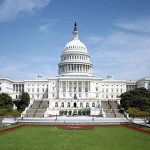 By Renee Schoof
By Renee Schoof
McClatchy Washington Bureau
November 25, 2013
When Congress returns to Washington after Thanksgiving, budget negotiations will be getting down to the wire on a deal for next year’s federal spending.
Without an agreement in December, North Carolina and the nation could be facing a second round of the automatic spending cuts known as sequestration. Those indiscriminate cuts have had ripple effects on the state in many areas, including Head Start, highways, research, meals for low-income seniors and the defense industry.
The impacts ahead are hard to predict. Budget negotiators from the Senate and House of Representatives could reach a deal. Congress also could change the terms of the sequester cuts. Or
another stop-gap spending bill could continue the same level of cuts. A second year of automatic cuts could be deeper than the first because last year’s cuts began March 1, but the second year’s cuts under the 2011 Budget Control Act would be for a full year, said Alexandra Forter Sirota, director of the Budget and Tax Center in Raleigh.
It also would follow cuts by the state legislature.
“The combined effect of federal and state cuts is going to be devastating,” Sirota said.